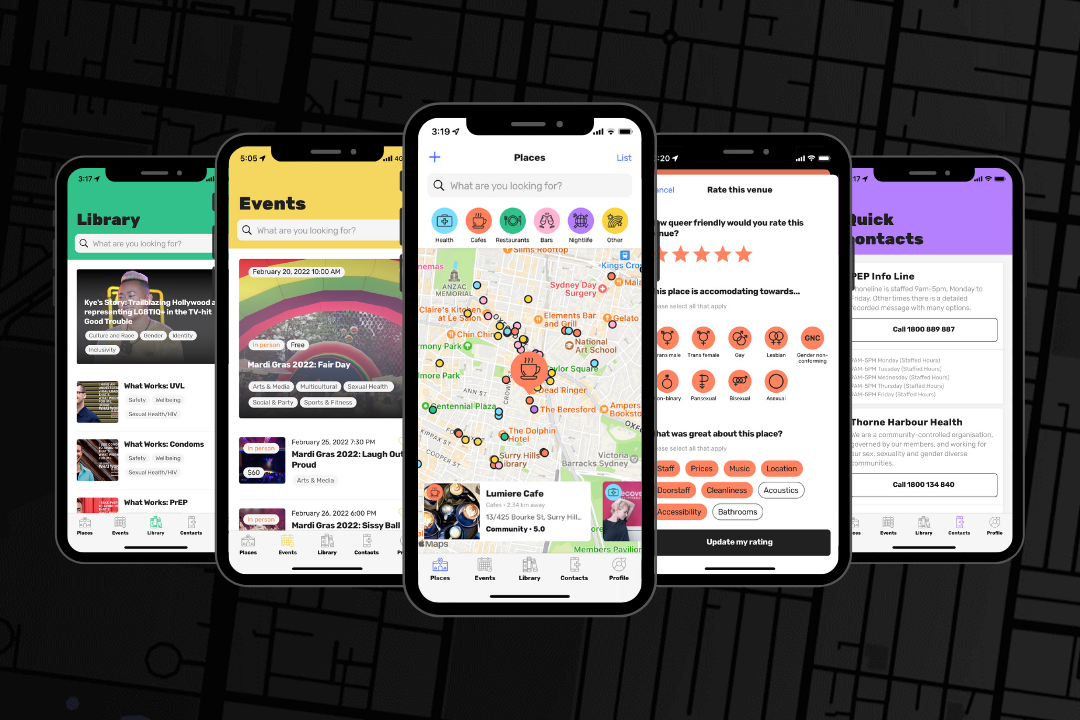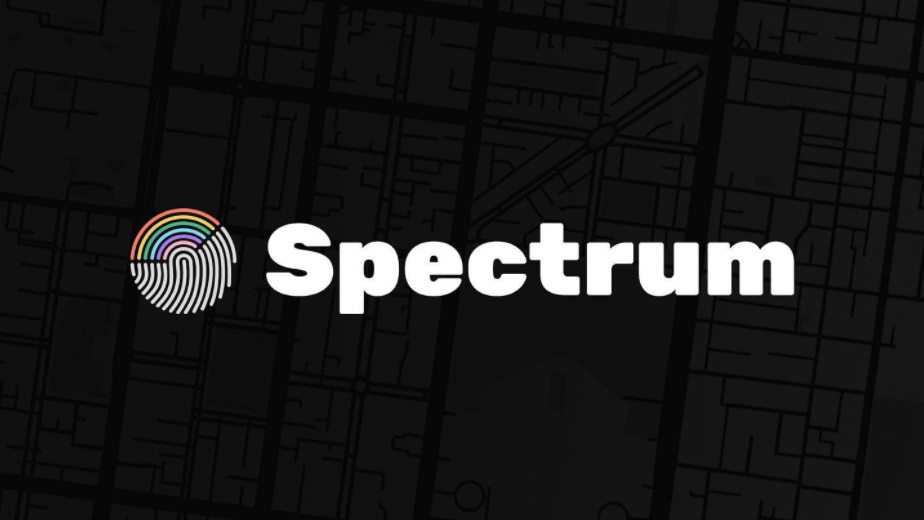Spectrum is an app that works to connect and strengthen the queer community. If you liked the clever choice of name, you will love the many features the app itself has to offer. The app works like Yelp, connecting people to quality businesses that have been tried and tested by the court of public opinion. However, where other review platforms can feel very business-oriented, Spectrum’s main mission is to help its users feel safe, included, and connected.
Vertigo spoke to Co-founder Matt Fiacchi about his app and its purpose to support isolated, closeted or at-risk people, and provide resources for the mental ill-health that can be so abundant in the LGBT+ community
V: What is Spectrum, and what features does it have?
MF: For the uninitiated, I suppose the Spectrum app is a hub of all things queer. It’s an app that allows you to find and rates paces depending on how queer-friendly they are, and add your own places that you’ve been to. You can also attend queer events and buy tickets through the app, as well as access a library of information on topics like sexual and mental health.We’ve also built in emergency contacts — like Beyond Blue, the Butterfly Foundation, Mensline — so that if you’re a queer person who needs to access help right away, you have that.
V: Why is this app important for the queer community?
MF: As part of the research for the app’s development, I asked queer people about their adolescent experiences — because it can be very isolating. Within the queer community, there’s a lot of people who are at risk of suicide. The very last question I asked these people was, “If you could design an app for your younger self, what would it do?”
This app was built by stories that we heard from people: what they needed and what they would have wanted when they were younger. Even for me, growing up in Adelaide, you just didn’t see visibly queer people anywhere. If you did, they were harassed, so it wasn’t a very nice place to grow up. When I was younger, I would have wanted an app that could have shown me what places nearby — even if they weren’t necessarily gay bars — were safe to go to. Every now and then, someone will come up to me and say, “Wow, I needed this when I was growing up, I needed this when I was in my early 20s.”
“I guess it’s about paying it forward for the rest of the community and letting them know that there is somewhere, no matter where you are in this country, that you can go to and feel safe.”
V: Where did this journey of app development begin?
MF: I actually developed the idea while I was at uni studying a Bachelor of Advertising and Marketing. My lecturer asked, “Okay, who are you? What do you want to do with your career? What are you passionate about?” My answers were: “I’m queer, I want to use technology to make life better, and I want to help the queer community”. That’s sort of where Spectrum came from. I presented the concept to a panel of people and they really, really liked it. I decided to give it a go and enter an app pitch competition. That’s where I met my co-founder, Tish Tambakau, who is based in Melbourne. We pitched the idea to a CEO, CFO, and a bunch of other people in marketing, and we actually ended up winning the prize pool of $100,000. From there we had six months to prove ourselves by building a beta version of the app. We launched it just before Mardi Gras in 2020 and then a month later, we went into lockdown. (laughs)
V: Are there any plans for expansion in certain features?
MF: There are a few things we want to do, like tuning up some of the issues that we’ve seen, and just building on what we’ve already got there. It has a really solid base; it just needs a bit more love and a bit more ongoing support. We also want to do some more work with promoting and partnering with queer businesses. When we originally started dreaming of the app, it mostly came from a community perspective. But queer businesses are also part of the queer community, so we’ve been doing a lot of work with a few different agencies to get that rolling.
For example, the goal is that if I’m walking down Oxford Street, I can open up the Spectrum app, and I might get 20% off my first round of drinks at a particular bar, or I might go to another business and receive a free book or discount. We’re trying to figure out ways to make it really worthwhile for businesses to get involved. To get that funding and get things moving, we do need the community that’s already present to get on board and populate it with venues and ratings, and attend events that we’re promoting on the app. That’s our biggest challenge right now, getting it in front of people, because once people use it, they will be like, “Oh my God, this is essential.”

V: How does it work towards inclusion?
MF: Within the queer community, there are so many people with different experiences and intersections that we wanted to make sure that we’re always able to tailor to them. With the app, you can discuss whether the venue is good for gay people, trans people, lesbians, and asexual people, etc. You can say whether the bar staff are good, what the prices are like, whether there’s accessibility, and if the security are reasonable. Just because a venue is really good for a gay man that doesn’t mean it’s appropriate for a trans woman. A venue might have a Queer Night once a month, but maybe their security guards aren’t as trained up as they need to be.
“Spectrum is really about making sure that no matter who you are or what your needs are, you can find a place that’s right for you.”
And it’s not just bars and nightclubs — it’s also cafes, restaurants, and health professionals.
V: What are your hopes for Spectrum?
MF: I think my grand vision for Spectrum is that it becomes as popular as Grindr in the sense that it will be the essential app people are just on, but obviously serving a different purpose (laughs). It’s like if someone is going out tonight and they want a place to go, or if they’re getting off the plane in this new city, they can find all the places they need to get to.
“It’s just like the hub of everything queer that lives in your pocket. “
I want Spectrum to be something I can do full-time to really enrich people’s lives and actually add something of value to the community. I’ve had people reach out to me and say “Wow, this is amazing. My son would love this”, and others just saying it was a great thing to do. I want to latch on to that feeling and use that enthusiasm to let it flourish. I want people to know that this app is something that they can use to feel safe. I’d love for it to become the go-to app in every way, to be in every person’s pocket, so that they can know, “Cool, Spectrum is for me. I’ve got everything I need right here.


 -
-